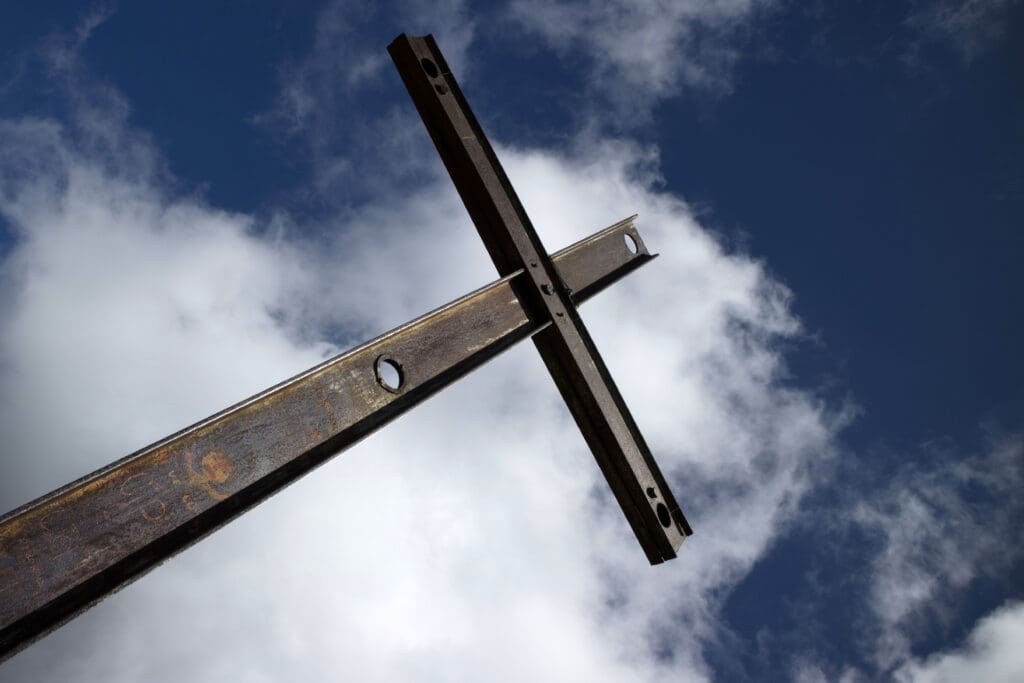
When did Jesus die? Can we say for sure when it happened? While the Bible provides a lot of insight into the events around Jesus death, it’s not like the Gospel writers were writing a medical drama where a doctor dramatically calls a time of death. We have to remember that the writers of the Gospels, the biographical accounts of Jesus life, weren’t always interested in the specific details of history – instead, they’re trying to pull us into a story (a true story nonetheless!) that calls us into a life of following Jesus.
So, they didn’t write that Jesus died on April 3, CE 33 (though some argue this is when it happened) because that detail is ultimately not one that’s about helping you live like Jesus would if he were living your life, which is what the Gospels are really about.
Still, “When did Jesus die?” is an important question to ask because Christianity is a historical faith. It’s tied to events that really did happen in history, and we believe that the events the Gospels describe really did happen in history. They’re not just fables or nice stories.
The Bible does give us a timeline of events, even though it doesn’t tell us which year or month they happened in, and it’s helpful to look through the Biblical timeline:
- After Pilate formally condemns Jesus to death, the Gospels tell us that Roman soldiers mock and beat him (Matt 27:27–30; Mark 15:16–19).
- The soldiers strip Jesus of the robe and put his own clothes back on. They find a man named Simon to carry the cross to Golgotha (the Place of the Skull, where he was crucified) for Jesus (Mark 27:31–34; 15:20–23; Luke 23:26–33; John 19:16–17).
- According to Mark, Jesus’s crucifixion begins at “the third hour,” or 9 a.m. (Mark 15:25). John says the soldiers begin to crucify Jesus at noon (John 19:14). Jesus is crucified between two criminals (Luke 23:33; Matt 27:39; Mark 15:27).
- Jesus prays for those crucifying him, asking for the Father to forgive them (Luke 23:34).
- The soldiers divide up Jesus’s clothing (Matt 27:35; Mark 15:24; Luke 23:34; John 19:23–25).
- Jesus asks John to look after Mary (John 19:26, 27).
- The soldiers, chief priests, and one of the criminals next to Jesus mock him (Matt 27:41–44; Mark 15:31–32; Luke 23:35, 39).
- One of the criminals asks Jesus to “remember me in paradise.” Jesus agrees to do so (Luke 20:40–43).
- Darkness falls on the crucifixion from noon until 3 p.m. (Matt 27:45; Mark 15:33; Luke 23:44).
- Jesus cries out to God (Mark 15:34; Matt 27:46).
- Jesus says he is thirsty and a spectator offers him a sponge soaked in wine (John 19:28–30).
- Jesus declares, “It is finished” and commends his spirit to the Father (Luke 23:46; Matt 27:50; Mark 15:37).
- Jesus dies (Matt 27:50; Mark 15:37; Luke 23:46; John 19:30).
- John tells us “since it was preparation day,” the Jews didn’t want the bodies to stay on the cross during the Sabbath (the next day), so soldiers broke the legs of the criminals so they would die quickly. That’s when they discovered he was already dead.
- A soldier then pierces Jesus’s side and blood and water come out of Jesus’s side, which is used as proof he was dead.
Because of the difficulties and errors in ways that years have been counted through history, it can be difficult to pinpoint exact years in early history. Scholars tend to place Jesus death somewhere around CE 28-33 (common era; sometimes known as AD, or Anno Domini, year of our Lord). The people who devised the AD dating system seem to have done so with some miscalculating, which makes precision difficult.
Scholars tend to date Jesus’ birth as sometime between 4 and 6 BC, with many accepting 4 BC as the most likely (majority consensus no longer holds that Jesus was born in 1 AD because of the faulty calculations in creating that system). Scholars have a lot of great reasons for believing 4 BC as Jesus’ birth year, and most of it is how political figures and events mentioned in the New Testament line up with Roman historical records.
If you add thirty-three years, the number of years Jesus lived, to 4 BC, you wind up with CE, or AD, 30. Remember, the medieval didn’t have a year zero, so that’s how it adds up.
Further evidence from Roman and New Testament records supports the year CE 30. Pilate is a Roman official mentioned in all four Gospels and Acts, and couldn’t have been around in his role sooner than CE 27, and probably wasn’t new when he started his role, so the earliest crucifixion date is CE 28.
The high priest Caiaphas also helps us date the crucifixion. Records suggest he stopped being high priest in CE 34, which sets the latest crucifixion date as CE 33.
That means the crucifixion, based on those two figures mentioned in history and in Scripture, had to happen between CE 28 and 33, and CE 30 fits well in the middle.
We also know that Jesus died on a Friday, which is why Christians observe Good Friday. We have to remember that in this culture, a day didn’t always mean a full twenty-four hours. We don’t even always use the word ‘day’ that specifically in our own time and culture. Jesus was crucified on an the afternoon following the Passover meal (Friday), and rose on a Sunday three days later (a partial day, a full day, and another partial day).
We hope that this has helped answer the question of “When did Jesus die?” If you’d like to learn more about Jesus, or celebrate Easter, join us at First Baptist Arlington!
Recent Posts
Preparing for Corporate worship on Sunday begin on Monday! Here are some weekly reminders on how to prepare for Corporate Worship on Sunday. Sunday Nov. 6th, 2022 Prepare…




